QuestionI have a 28-29 year old male cockatiel "Peaches" - I got him when I was in 15 yrs old in high school and worked for a veterinarian and I just turned 44. He lives with my parents.
I also have a very sweet aproximate 5 year old female "Julia" that we adopted. We often babysit Peaches when my parents travel and he will be staying with ous for 2 weeks at the end of August. We usually just put their cages next to each other and we sometimes leave them open, but she will eat all his food if we dont keep her in his cage. She has laid eggs in the past (not when Peaches has been with us)and we were wondering if there's any way to get them to get a little more "friendly". We would love to have Peaches' babies, don't want to stress him because he's so old. He really shows no signs of aging except for a little more pin feather on his torso then when he was younger, and he's more selective as to whom he will let pick him up.
What is your advice (my inclination is to not stress him), and also is there any way to officially record his age? I have photos of him over the years that would verify his age and many stories - He ecaped overnight once and I got him back! And he scared burglers away from robbing my parent house.
AnswerI do not recommend breeding "peaches" with Julia, he is just too aged to do this. Plus, if you only babysit peaches occationally, this would not be enough time to breed her with a male. (A younger male would need to be quarantined for at least 30 days- with a vet check up in that time-), you would have to introduce the birds and give them time to bond. And once the eggs are layed incubation takes at least 12 to 14 days.... and then the babies are raised by both mom and dad for at least 8 weeks.
Here are some other things to consider before breeding:
) If the parents reject or begin to injure their babies... will you know how to properly care and hand-feed the baby birds?
Will you have the time to hand-feed the babies? (For parrots- like cockatiels, conures, Senegals and up�. You need to hand-feed the babies in order for them to have a reasonable shot at finding loving, forever homes once they are weaned. Parrots who are �wild� and untamed/unhandled usually only go into breeding programs and are often moved from home to home if they don�t meet the breeder�s expectations, the breeder needs new. Breeder birds are often kept outdoors in harsh weather with little or no protection from the elements. Untamed and birds whom have not been hand-fed (whether they are used for breeding or not) usually spend their entire lives locked up in a cage). Many people do not have the time or commitment to tame down a parrot- and larger parrots can bite HARD. This strongly discourages people from continuing to work with an untamed parrot. If the parrot baby is hand-fed and well socialized, individuals will be interested in spending their lives with this bird. If you screen properly- you can find loving homes who will keep the bird in a clean, safe environment. Where the bird will be let out of the cage, allowed to play and socialize with their �human flock� daily. And if the bird is properly cared for- they will receive a wide variety of food (not just seeds), lots of toys and regular vet care).
2) Will you be able to find qualified homes for ALL of the babies?
Clutch size can be anywhere from 3 to 6 birds, depending on the species. And how will you make sure the home is knowledgeable about proper bird care (interviews, home checks, etc�)? (It is essential that you find homes for each and every one of the babies that will be committed to this bird and properly care for the baby their entire life span. Parrots are one of the few/only creatures that have shorter life expectancies in captivity than they do in the wild- this is due to the improper care too many birds receive. That is your responsibility as a breeder to make sure that the homes your babies go to will be responsible and properly care for their new parrot. It is also your responsibility to take back any babies that might not work out in their new family- for whatever reasons, at any time. Period. That is the responsibility you take on when you bring new lives into the world.
3) Are the parent birds healthy?
They need to be on a good, varied diet of pellets, fruits/veggies and limited amounts of seeds. They need to be checked out by an avian vet and given a clean bill of health. Your breeding pair(s) need to be in tip-top shape so that they can produce strong, healthy babies. Weak (or sick) parents equal sick and weak babies� or no babies at all. Just because your bird appears healthy to the naked eye- does not mean that your bird is good to go. You bird might have a genetic defect or disease that won�t show up years down the line. If your bird is not set up in ideal conditions, it might be years before s/he dies due to improper care. But babies will be much more susceptible to unsanitary conditions or a poor diet. This complication could be passed onto the babies. So it is essential that a qualified avian vet examine each parent bird and run tests to insure good health.
4) Is the cage big enough?
If the parent birds are small *like budgies, canaries, etc* (or other birds that do not require hand-feeding)� after only a few weeks, the baby birds will spend the majority of their time outside the nest box. They will be fledglings hoping around in the cage with the parents... will your cage be big enough to house up to 7 or 8 birds? If the birds are larger than budgies, canaries or finches- babies should be being pulled for hand-feeding before they are ready to leave the nest box. Usually around 1 to 2 weeks of age.
5) Do you have a qualified avian vet?
What if the mother bird gets egg-bound? Will you have an avian vet that could see and treat her immediately? If not, you can find one in your area at: www.aav.org or http://www.birdsnways.com/articles/abvpvets.htm ).
6) Are you ready to loose your companion(s)?
Most breeding birds become extremely aggressive towards people. Are you ready to loose your tame, beloved pet? Birds are not like dogs and cats that seem to love their people and be open to affection (even if they are raising a litter). Birds will become territorial over their nesting site/cage and will try to �protect� this area and their young/eggs. If you decide to pair your bird up with another bird for breeding, you will most definitely not have a tame pet anymore.
Birds that are breeding need peace, quiet and extra large enclosures to breed successfully. They will bond strongly (hopefully) with their bird mate and will most likely loose interest in people (or perhaps even become extremely aggressive towards people).
7) There are thousands of unwanted birds currently at shelters and rescue groups throughout the United States� even more birds are neglected and abused in irresponsible homes. By breeding birds you could be taking away quality families and homes for these homeless and needy birds to be adopted by.
Instead of breeding, consider getting involved in rescue work. Companion Bird populations are quickly become a crisis (just like we see with the millions of dogs and cats that are put to sleep in shelters each year). Thousands of birds are currently in shelters and rescue groups looking for loving, forever homes. And thousands more have homes, but are neglected or abused. These irresponsible homes: feed all seed diets , do not keep the cages clean, keep birds by themselves without proper daily social interaction with their human companions And/Or keep their birds confined to a cage that is too small 24/7.
__________
If you decide that breeding is a responsbility that you do NOT want to take on, here is an article with information on discouraging breeding behavior in companion birds:
http://www.forthebirdsdvm.com/breedingbehavior.htm
________
If you decide that you DO want to breed birds, there are some things you will need to fix first. I would recommend getting a proper nest box for them if you do decide to breed them (after both birds have been looked at by a vet to make sure they are healthy and strong enough to lay and raise eggs). Lovebirds need a box that is at least 7 inches square at the base, and at least 8 or 9 inches high. (Usually a nesting box made for a parakeet will work. Sometimes a cockatiel size nesting box works well too). It should be made out of wood (a shoe box is too easy for a lovebird to chew apart and destroy... it is not very sturdy).
Eggs should hatch by 20 to 25 days (this time is shorter for budgies). However, if they were all seperate in the nest, it sounds like she is not incubating them consistently enough for them to develope correctly and hatch. You will also want to make sure to discourage egg laying unless the birds are set up properly for breeding (and you want to limit the birds to raising at most two clutches a year). "Egg production is stressful for birds; it depletes their nutritional stores, and predisposes them to malnutrition, osteoporosis, and life-threatening illnesses. In situations where birds are being intentionally bred, these risks are an inherent part of the breeding process" (www.forthebirdsDVM.com).
Lovebirds cannot be visually sexed, and sometimes females will lay eggs by themselves (without the assistance of a male). To confirm that your second bird (who didn't lay the egg) is a male, you can take him to a vet to get DNA sexed. (They take a small blood sample or sometimes a feather, and send it off to a lab where the DNA structure is analyized to determine the gender of the bird).
Also, here is some articles that will help you breed your birds more responsibly and with some more knowledge of how to do so properly:
http://www.ellen-parrots.com/lovestory.html
http://www.parrotparrot.com/lovebirds/breeding.htm
The next series of articles are written with cockatiels in mind, but most (if not all) of the information applies to lovebirds too:
http://www.wingedwisdom.com/ww60e.htm (Introduction)
http://www.wingedwisdom.com/ww61e.htm (Incubation)
http://www.wingedwisdom.com/ww61e.htm (Handfeeding babies)
http://www.wingedwisdom.com/ww63e.htm (Handfeeding babies- part two)
http://www.wingedwisdom.com/ww63e.htm (brooders and brooding babies)
http://www.wingedwisdom.com/ww65e.htm (Fledging chicks)
http://www.wingedwisdom.com/ww66e.htm (Socializing the babies)
http://www.wingedwisdom.com/ww67e.htm (Weaning)
http://www.wingedwisdom.com/ww68e.htm (Recording Keeping)
http://www.wingedwisdom.com/ww69e.htm (Selling the babies)
I hope this helps. :)
-Maggie

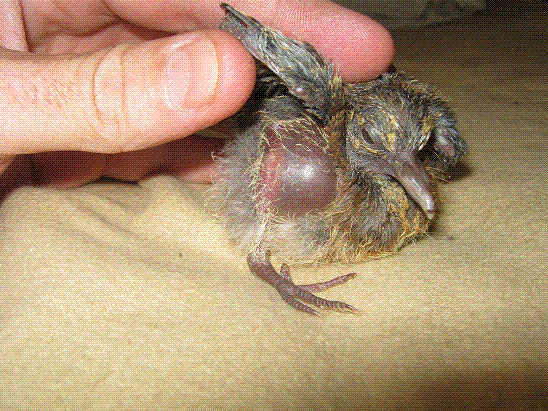 Baby Pigeon
Question
Cosmo
Hi Roger
We picked up a baby pigeon, ap
Baby Pigeon
Question
Cosmo
Hi Roger
We picked up a baby pigeon, ap
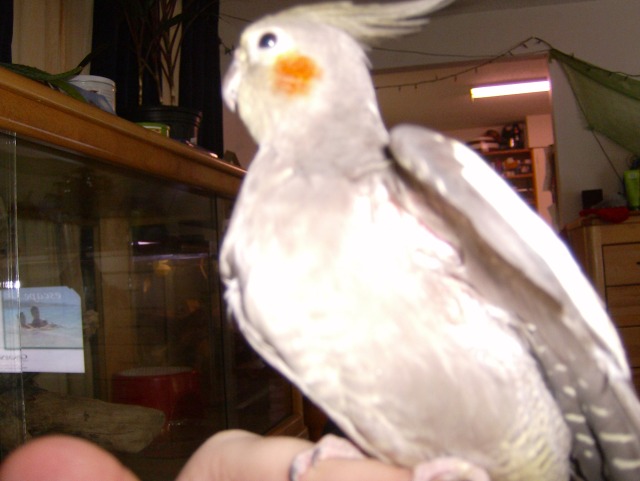 my cockitale mocha
QuestionQUESTION: I have a cokitale that will be 3 on A
my cockitale mocha
QuestionQUESTION: I have a cokitale that will be 3 on A
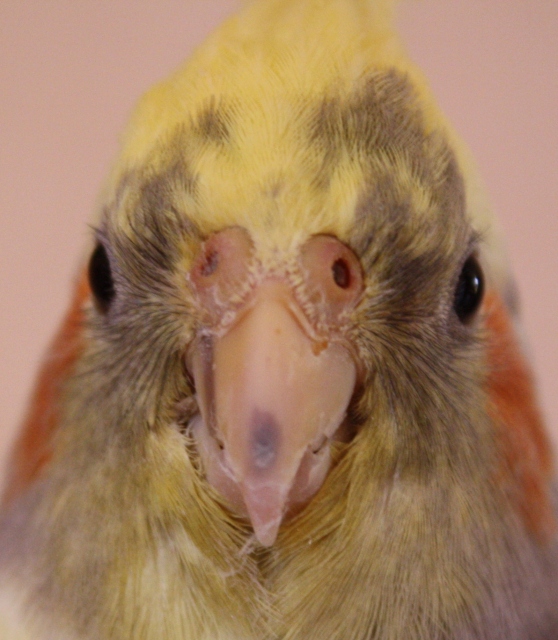 Bruise-like discoloration of beak (Cockatiel)
QuestionSasha
QUESTION: Our Cockatiel has develo
Bruise-like discoloration of beak (Cockatiel)
QuestionSasha
QUESTION: Our Cockatiel has develo
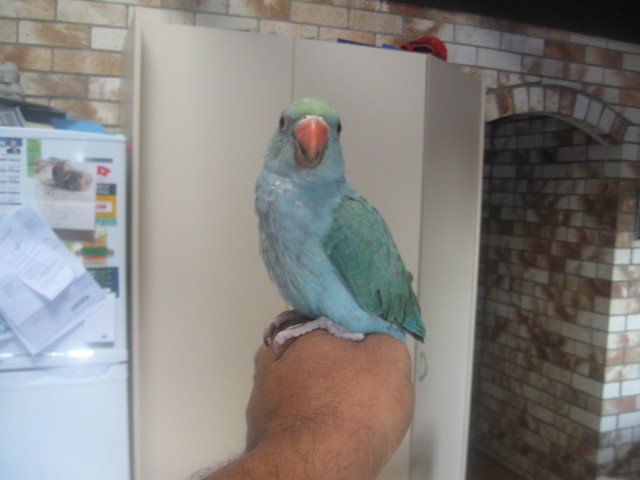 Color of my indian ringneck
Question
Boots
I have an eleven week old male ringneck
Color of my indian ringneck
Question
Boots
I have an eleven week old male ringneck
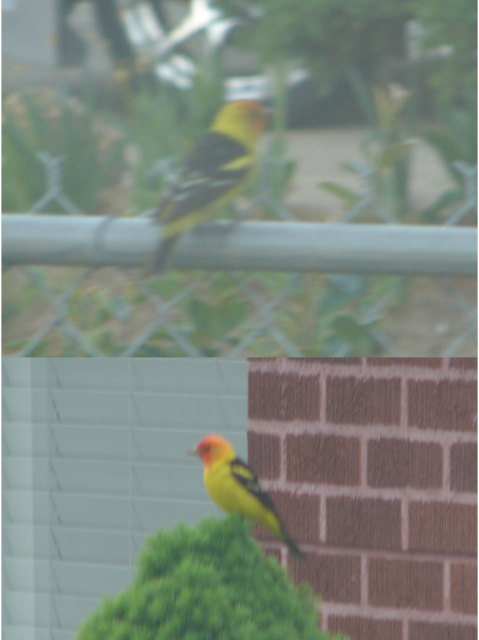 Wild or Domestic?
Question
Pretty Birds
There are these three birds in my
Wild or Domestic?
Question
Pretty Birds
There are these three birds in my